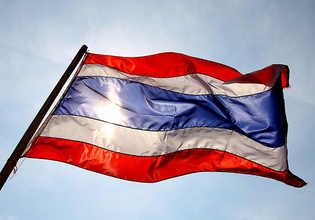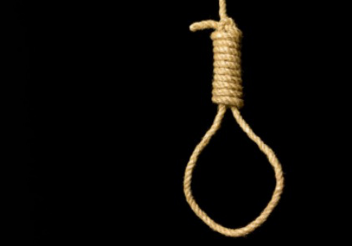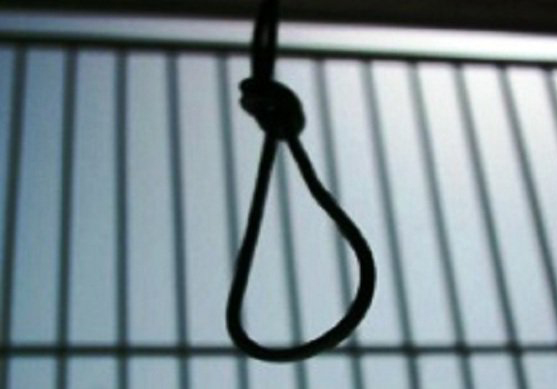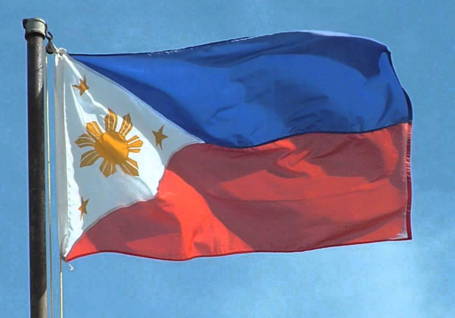
Mar 7, 2017 | News
The ICJ welcomes Thailand’s decision to drop spurious criminal defamation complaints against three prominent human rights defenders who had raised allegations of torture by security forces in Thailand’s restive deep South.
“It’s good news that the Thai military has dropped these unfounded complaints, but these charges should never have been brought. Thailand should now ensure the allegations of torture and ill-treatment are independently and effectively investigated,” said Sam Zarifi, the ICJ’s Asia Director.
“Thailand should also work to repair the considerable damage that was caused to alleged victims of torture and civil society who have been intimidated into silence by the prosecutions,” Zarifi continued.
On 10 February 2016, three Thai organizations, the Cross Cultural Foundation (CrCF), Duay Jai Group (Hearty Support Group), and the Patani Human Rights Organization (HAP), issued a report that documented 54 cases of alleged torture and ill-treatment by the Thai security forces in the deep South since 2004.
In response, the Internal Security Operations Command (ISOC) brought criminal defamation complaints against the three co-editors, Ms. Pornpen Khongkachonkiet (Director of the CrCF), Mr. Somchai Homlaor (Senior legal advisor to CrCF and Hearty Support Group), and Ms. Anchana Heemmina (founder and Director of the Hearty Support Group).
On 26 July 2016, the Thai police charged the three human rights defenders with criminal defamation by means of publication under Article 326 and 328 of the Penal Code, and importing false information to a computer system under Article 14 (1) of the Computer-Related Crime Act B.E. 2550 (2007).
The ICJ has been concerned by the abuse of criminal laws, including the already problematic criminal defamation law, as a means of effectively silencing human rights defenders.
“Thailand should now drop other outstanding criminal complaints against human rights defenders, including the complaint of sedition made against human rights lawyer Sirikan Charoensiri, and ensure that they are protected from retaliation,” Zarifi said. “We look forward to the ISOC following through on its commitment to working with civil society to end torture and ill-treatment and bring any perpetrators to justice.”
Background
On 7 March 2017, the ISOC 4 Forward Command – created to resolve the situation in the deep South – and the three human rights defenders, held a joint press conference.
The ISOC 4 Forward Command announced the ISOC will drop the complaints, citing the need for authorities and NGOs to work together collaboratively to address alleged human rights violations. ISOC 4 Forward Command also announced the establishment of a “joint fact-finding committee” which will be made up of officials and NGOs to look into allegations of human rights violations and to explore preventative measures.
The dropping of the charges occurs against the backdrop of the National Legislative Assembly (NLA) referring a draft law criminalizing torture and enforced disappearance back to the Cabinet, effectively delaying its passage indefinitely, despite Thailand’s repeated assurances on the international stage that it will pass the law in the near future.
On 13 and 14 March 2017, the UN Human Rights Committee will review Thailand’s compliance with the International Covenant on Civil and Political Rights (ICCPR), to which it is a State Party.
In a joint submission to the Committee, the ICJ and Thai Lawyers for Human Rights (TLHR) called for an end to the legal harassment of human rights defenders and for all allegations of torture, ill-treatment and enforced disappearance to be independently, impartially, and effectively investigated.
Further reading
https://www.icj.org/thailand-stop-use-of-defamation-charges-against-human-rights-defenders-seeking-accountability-for-torture/
https://www.icj.org/thailand-immediately-withdraw-criminal-complaints-against-human-rights-defenders/
Contact
Kingsley Abbott, Senior International Legal Adviser for Southeast Asia, ICJ, email: kingsley.abbott(a)icj.org or mobile: +66 94 470 1345
Thailand-HRD dropped charges-news-2017-THA (Statement in Thai, PDF)

Mar 7, 2017 | News
The ICJ today condemned the move of the Philippines’ House of Representatives to reintroduce the death penalty for drug-related crimes.
The ICJ has called on the country’s Senate to block this serious threat to human rights.
Earlier today, the House of Representatives approved House Bill 4727 on third and final reading by 216 votes. 54 voted “no”, and one abstained. The bill as amended reinstates the death penalty for drug-related crimes, more than 10 years after the Philippines had legally abandoned executions.
The approved bill will be transmitted to the Senate, where it will go through the same procedure of three readings.
“The passage of the death penalty bill in the Philippine House of Representatives represents a turning point in the country, but one that is for the worse. It puts the Philippines in direct conflict with its international legal obligations,” said Emerlynne Gil, ICJ’s Senior International Legal Adviser for Southeast Asia.
“Now it’s up to the Philippine Senate to stop this terrible and unconscionable move and preserve the Philippines’ status as a regional leader against the death penalty,” Gil added.
Since 2007, the Philippines has been a Party to the Second Optional Protocol to the International Covenant on Civil and Political Rights (ICCPR), requiring all parties to abolish the death penalty in law and practice. Under the ICCPR and the Second Protocol, States are prohibited from bringing back the death penalty once it has been abolished in domestic laws.
“Passing this law will send a negative message to the international community that the Philippines is incapable of observing in good faith the international obligations it has expressly bound itself to,” Gil said.
Ever since it abolished the death penalty in 2006, the Philippines has been viewed by many observers as a regional and global leader on the drive to abolish capital punishment. Not only was it the very first Southeast Asian country to ratify the Second Optional Protocol to the ICCPR, it also played an instrumental role in advocating for the abolition of the death penalty worldwide.
Since 2007, the Philippines has consistently co-sponsored multiple UN General Assembly resolutions calling for a moratorium on the use of the death penalty with a view to its total abolition. These resolutions have been adopted with large majorities.
“The Duterte administration had already engaged in hundreds, if not thousands, of extrajudicial killings justified by unsubstantiated claims that such wholesale crimes will somehow respond to the country’s drug problem. The resumption of the death penalty compounds the horrors of this bloody campaign without any evidence whatsoever that this odious practice will in any way improve the alleged drug problem in the country,” Gil said.
Rather than the death penalty, studies have demonstrated that heightened enforcement efforts which increase the chances of actually being caught and punished are more effective in deterring criminal conduct.
The ICJ therefore calls on the Senate of the Philippines to reject in full the bill seeking to re-impose the death penalty in the country in accordance with the Philippines’ international obligations.
Background
The bill approved by the House of Representatives (Lower House) will be transmitted to the Senate (Upper House), where it will go through the same procedure of three readings.
If the bill is approved upon the third reading at the Senate without amendments, it will be presented to the President. The bill would become a law if and when it is signed by the President.
If, however, there are amendments on the bill at the Senate and the House of Representatives do not agree with these amendments, the differences would be settled by a Conference Committee of both Houses.
The recommendations of the Conference Committee would have to be approved by both Houses.
Contact
Ms. Emerlynne Gil, ICJ’s Senior International Legal Adviser, tel. no. +66 840 923 575, email: emerlynne.gil(a)icj.org

Mar 3, 2017 | News
The ICJ today urged the Philippine Congress to bring a halt to the Government’s attempt to bring back capital punishment.
The Philippine Congress’s attempt to restore this heinous practice is in blatant breach of its international legal obligations.
The ICJ condemned the approval on second reading of a bill to restore the death penalty by the Philippines’ House of Representatives on 1 March 2017 and called on legislators to vigorously oppose it and prevent it from being passed on final reading.
If adopted, the legislation will place the Philippines at odds with its legal obligation under international treaties to which it is party, the International Covenant on Civil and Political Rights (ICCPR) and its second Optional Protocol aiming at the abolition of the death penalty.
The ICJ also expressed concern at the manner in which the bill was effectively railroaded through the Philippine House of Representatives this week when it passed on second reading House Bill 4727, which seeks to reintroduce the death penalty for drug-related crimes.
House Bill 4727 will be put to a final vote on third reading next week. Nominal voting will be done on the third reading of the bill, which means that one by one, legislators would be called to explain their vote.
To marshal enough support for the bill, pro-death penalty legislators struck off all other crimes that were proposed in the original bill to be punishable by death, such as plunder, treason, and rape.
As it stands now, House Bill 4727 imposes capital punishment only on commission of drug-related crimes. Proponents of the bill claim that this is to support the President’s “war on drugs”.
The controversial measure was approved only eight session days after it reached the plenary for debates on 1 February 2017.
“It is obvious that proponents of State killing as means of “justice” were intent on rushing the passage of the death penalty bill by thwarting any substantial discussion thereon and by pressuring into silence those who oppose it,” said Emerlynne Gil, ICJ’s Senior International Legal Adviser for Southeast Asia.
A similar bill proposing to bring back the death penalty has been filed at the Philippine Senate. The Senate Committee on Justice and Human Rights conducted the first hearing on the bill last 7 February 2017. The Committee Chair, Senator Richard Gordon, indefinitely suspended the hearing until the Department of Justice is able to submit its opinion on the Philippines’ obligations under the ICCPR and its Second Optional Protocol.
“Until recently, the Philippines had set an example of regional and global best practice on the abolition of the death penalty. Reintroducing the death penalty will be an enormous move backward for the country,” Gil emphasized.
The move by the Philippines goes against a global trend towards abolition of the death penalty.
In December, the United Nations General Assembly voted by a large majority, for the sixth time, to adopt a resolution which called on states that have abolished the death penalty not to reintroduce it. It also called on all retentionist States to impose a moratorium on the death penalty with a view to abolition.
The ICJ opposes the death penalty in all cases and considers its use to be a violation of the right to life and freedom from cruel, inhuman, or degrading punishment.
Background
The leadership has sought to bypass normal procedures in hastily pushing through the bill seeking to re-impose the death penalty at various stages of the Philippine Congress.
9 November 2016: the Sub-Committee on Judicial Reforms began hearings on the bill seeking to re-impose the death penalty.
29 November 2016: the Sub-Committee approved the bill after it rushed through the proceedings, ignoring important questions from other lawmakers questioning the need for such legislation. The bill was thereafter referred to the Committee on Justice for further deliberation.
7 December 2016: the Committee on Justice approved the bill and moved that it be debated in plenary.
1 February 2017: the plenary debate on House Bill 4727 began.
8 February 2017: the Speaker of the House of Representatives, in a closed-door caucus among members of the supermajority, threatened that those who oppose the bill will be stripped of their leadership posts in Congress, i.e. committee chairmanships and Deputy Speakerships.
28 February 2017: amidst vehement objections from the opposition, the debate in plenary was ended. This was done despite the fact that only nine out of at least 50 members of Congress who had registered to interpellate the sponsors of the bill had been given the opportunity to do so.
1 March 2017: during the period of individual amendments, the sponsors of the bill invoked omnibus rejection to all proposed amendments, rejecting every proposal that was deemed inconsistent with the House leadership’s agenda of immediately passing the bill. Later that day, the period of individual amendments was ended, despite calls from legislators who wished to make further changes to the bill.
Contact
Ms. Emerlynne Gil, ICJ’s Senior International Legal Adviser, tel. no. +66 840923575, email: emerlynne.gil(a)icj.org

Feb 28, 2017 | News
The ICJ condemns the arrest and detention of Senator Leila De Lima and calls for her immediate release.
The ICJ believes that the charges brought against Senator De Lima are fabricated and thus considers her prosecution to be politically motivated and amounting to judicial persecution.
Senator De Lima is a staunch critic of President Rodrigo Duterte.
“This is clearly meant to silence for good a vocal critic of President Rodrigo Duterte,” said Sam Zarifi, ICJ’s Regional Director for Asia and the Pacific.
In August 2016, Senator De Lima led an investigation by the Senate Committee on Justice and Human Rights into hundreds of cases of extrajudicial killings occurring after President Duterte assumed power.
On 19 September 2016, however, she was removed by her colleagues from her position as chairperson of the said committee due to their concerns towards her “continuous efforts to destroy the President”.
Weeks before her removal, on 25 August 2016, President Duterte had accused Senator De Lima of running a drug trafficking ring inside New Bilibid Prison during her stint as Justice Secretary.
Subsequently, on 20 September 2016, led by the President’s allies in the Congress, the House Committee on Justice began a probe into these allegations against De Lima and in turn, on 17 February 2017, the Department of Justice filed three charges against her under the Comprehensive Dangerous Drugs Act of 2002 (Republic Act 9165): Section 5 specifically with “trading” in illegal drugs, Section 26(b), and Section 28. If found guilty, she may face the penalty or a prison sentence ranging between twelve years to life imprisonment.
Senator De Lima was then arrested on 23 February 2017.
“If the government really wants to defeat the illegal drug trade, there should be more prosecutions before domestic courts. We do not see this, however. We only see active persecution of those who are critical of the President’s ‘war on drugs’,” Zarifi added.
The ICJ also noted with profound concern the statements of officials from the Philippine government, including the Secretary of Justice, alluding to the Senator’s guilt which – apart from being inconsistent with the right to the presumption of innocence – constitute additional evidence that the charges against her are a blatant attempt not only to silence her for good but also to discredit her in the eyes of the public.
The right to presumption of innocence is an absolute right. According to the UN Human Rights Committee, public authorities and officials have a duty to restrain from prejudging the outcome of a trial, by refraining from making public statements appearing to affirm the guilt of the accused.
The ICJ believes that public authorities and officials, including prosecutors, may inform the public about criminal investigations or charges but should not express a view as to the guilt of any defendant.
The ICJ calls on the Philippine government to immediately release Senator De Lima and immediately stop any further acts of harassment against her and other public critics of the government.
Contact
Emerlynne Gil, ICJ’s Senior International Legal Adviser for Southeast Asia, t: +66 2 619 8477 ext. 206 or +66 840923575 ; e: emerlynne.gil(a)icj.org

Feb 27, 2017 | News, Publications, Reports, Thematic reports
The Government of Myanmar should impose a moratorium on the development of Special Economic Zones (SEZs) until it can ensure SEZs can be developed inline with international human rights laws and standards, said the ICJ at a report launch held today in Yangon.
The 88-page report, entitled Special Economic Zones in Myanmar and the State Duty to Protect Human rights, assesses the laws governing Myanmar’s SEZs and finds that the legal framework is not consistent with the State’s duty to protect human rights.
For example, a case study examining the Kyauk Phyu SEZ in Rakhine State shows that the land acquisition process initiated in early 2016 lacks transparency, does not comply with national laws on land acquisition, and risks violating the rights of 20,000 residents facing displacement.
“The SEZ Law undermines the protection of human rights, and critical legal procedures are often poorly implemented, so the Kyauk Phyu project risks repeating the rights violations that have been associated with SEZs in the past,” said Sam Zarifi, the ICJ’s Asia Director.
“The NLD-led Government can make a break from the past by ensuring economic development projects benefit Myanmar’s people, rather than rushing to facilitate projects which result in human rights violations and ultimately undermine sustainable development,” he added.
Myanmar’s legal framework for SEZs is based on the 2014 SEZ Law and incorporating national laws governing land, labour and the environment.
The report shows that while national laws require Environmental Impact Assessments and the application of international standards on involuntary resettlement, the SEZ Law does not establish clear accountabilities for the implementation of these procedures.
This has contributed to human rights violations and abuses in each of Myanmar’s three SEZs, the report says.
“It has been encouraging that government officials have emphasized their commitment to protecting human rights in SEZs in line with the rule of law,” said Sean Bain, the ICJ’s Legal Consultant in Myanmar and lead author of the report.
“The legal reforms recommended in this report will be critical to meet these commitments while fulfilling the State’s duty to protect human rights in SEZs. We also suggest that investors take heightened due diligence measures to ensure they are not complicit in rights violations,” he added.
The report was based on extensive legal research as well as interviews with over 100 people, from affected communities to investors and government officials, during 2016.
Key recommendations to the Government of Myanmar
- Protect human rights in Myanmar’s SEZs by amending the SEZ Law, through meaningful public consultation in accordance with international standards.
- Order a moratorium on the development of SEZs, and on entering related investment agreements, until the SEZ Law has been amended to ensure conformity with international human rights law and standards.
- Commission a Strategic Environmental Assessment for the Kyauk Phyu SEZ, in line with Myanmar’s environmental conservation laws. This would involve consultation to inform decision-making on the Kyauk Phyu SEZ and related projects, by identifying cumulative environmental and social impacts of all the developments in Kyauk Phyu, while considering conflict dynamics and economic development in Rakhine State.
- Suspend land acquisition in Kyauk Phyu until after the completion of a resettlement plan that is in line with international standards, as required in the EIA Procedure.
Contact
Sean Bain, ICJ Legal Consultant in Myanmar, t: +95 9263533230 ; e: sean.bain(a)icj.org
Myanmar-SEZ assessment-Publications-Reports-Thematic reports-2017-ENG (full report, in PDF)
Myanmar-SEZ assessment SUMMARY-Publications-Reports-Thematic reports-2017-ENG (executive summary of the report, in PDF)
Myanmar-SEZ assessment full-Publications-Reports-Thematic reports-2017-BUR (Burmese version of full report, in PDF)
Myanmar-SEZ assessment-Publications-Reports-Thematic reports-2017-BUR (Burmese version of the executive summary, in PDF)









